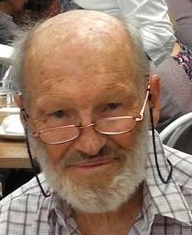Private Property Versus Common Property
By Lionel Anet
15 January, 2015
Countercurrents.org
During civilisation honesty was managed by complex competitive arguments that involved the incorporation of private property, which is the accruement of property from the common. The unfairness increases as that property accrues to private sector, because property is only of importance if it gives its owner power, it offers an unfair advantage in the competition for more property. So, fairness can never be a goal within civilisation as it’s based on unfairness. Therefore we strive for equalities that respect private property. They’re all nebulous concept that suits people with strong competitive “spirit”, and those best suited for that have psychopathic tendency, the less feeling one has the better one can outdo others in any competition.
The planet is the common for all living things present and future. The past doesn’t exist but the future may and the present can insure that the future will exist for our species in conjunction with a multitude of other species. That is, the common is not only for life now but the future. So to be fair one can’t take non-renewable substance because people in the future will not have them, and as they are a part of the common that exist at the present, those non-renewable must also ensure the future because that’s what life is about, it’s to safeguard the future otherwise there is no life.
If we were fair in all our interactions and take things that can’t be renewed we are taking from future people and if we think that’s OK we are dishonest, to be honest we may use non-renewables but must realise it’s not fair or honest as that honesty can only be partial. We must acknowledge that we are taking from the future and that’s unfair and therefor dishonest hence not to acknowledge the dishonesty is a doubly dishonest. Our starting point is to know what we do and then to become honest and fair, or die out.
Until agriculture, it was all the common it was used by all living things according to their ability and need but our needs are not exclusive of other life on the contrary they are inclusive and are still inclusive. However, we have private property, which has increased during civilisation and private property is exclusive and the more private property is appropriate from the commons the less social and inclusive life becomes. We are less inclusive and thereby placing ourselves in danger with the sheer size of our population, which impinges on most species. That’s exclusive and unfair for other life forms, it’s unsustainable and therefore unfair to children, we at present have the information but we don’t have the honesty.
In capitalist societies the common is also what is commonly own such as we had in Australia “The Commonwealth Bank”, which was own in common by all Australian except the Aboriginals people. The loss of that common property and many others is a loss of fairness and honesty. It increases the power of the powerful and it was done dishonestly by a labour government.
Civilised societies are neither fair nor honest and that’s the reason for their continual unrest. Peace - Justice- free speech – equality - ethics – morals – altruisms - they are the values we have fought for, for thousands of years but as they have no datum they are seen in many different ways and according to the interest and believes of the time. Morals have justified and enable people to kill millions of people and destroy so much of nature that it will impact severely on everyone.
For our descendants to survive we must be honest and fair but that’s not possible in civilisation as it built on the reverse of those values. The less value our private property is the more honest and fairer we can be. It’s either civilisation or our children that we attempt to persevere, but we can only succeed with the children.
 Lionel Anet is a member of Sydney U3A University of the Third Age, of 20 years standing and now a life member
Lionel Anet is a member of Sydney U3A University of the Third Age, of 20 years standing and now a life member
.
Comments are moderated

